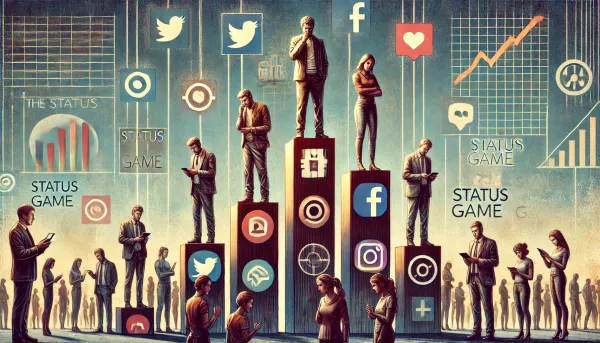Lessons learned so far
Lessons learned so far from 20+ years in the industry and 11 years of a building company taught me a few things. In the most general way to compare it in a few years and for you, I wrote it down in a generic form - maybe you will find it useful or add yours. Here are my 30 points. Enjoy!

It isn't a guide for you to live by. It is a dump of my current thinking, done for myself, to compare how my thinking has changed over the years.
This post wasn't planned, and I haven't thought about it in advance. It resulted from thinking about those things and reflecting on the past years on a lazy Sunday afternoon of Jan 2021 (yeah, 2020 gave us a lot to reflect upon). It might be hectic, and it is more than likely, that you read those things from other people before. We are the result of countless interactions, people we've met, and the books we've read.
Why do it in public instead of private notes?
Last year I started to be involved in mentoring activities. People I worked with were of different careers, backgrounds, ages, and current occupations. What I observed from those sessions was:
- Questions asked are formed around a few topics and areas of life and career.
- It helps me to build a stream of thoughts on the subject if someone asks a right question
- Usually, I have my well-formed opinion for those topics, didn't bother so far to write it down unless someone asked.
- A lot of answers in different conversations were the same.
I decided to write it down. The start of the year is a perfect moment to do it, for two reasons: I will have something to refer to when speaking with people about it. I would be able to compare in a year if I changed my mind on something.
Before I jump to writing it down, I will start with a disclaimer, coming from my review of Scott's Galloway Book:
This book is one version of answers to those questions
It is not a book (it might be one day), but this comment still stands. Don't treat it as a point of truth. It is input. Subjective input of someone who has a life, career path, and environment different than yours. Which, of course, doesn't make it invalid at all.
I woul also appriciate if you would leave a comment if you would like each (or some of them specifically) commented in a separate post or maybe audio version? Things might happen in 2021.
DISCLAIMER!
Lessons learned - it doesn't mean I have succeeded or excelled in all of them. Some of these are the results of my failures.
Let's dive in - here are my lessons learned so far.
1. It is a long haul game
There is no more straightforward way to say it. Be prepared; this thing called fulfillment, useful life, and career is a long haul game.
You will see some people doing it quicker than you, overnight success or getting to the "top" (whatever top is) in matters of days.
For (almost) all of us, it will not be the case. It will take years. It won't be easy, and sometimes it won't be pleasant at all.
Overnight success happens, but it is almost always a result of long-time work if you observe it. It is an example of survivorship bias - hard to repeat and with colossal competition trying to achieve the same.
Good things might happen when trying to repeat an overnights success with the right mindset, but you will burn time and attention to something that wasn't worth it.
Long haul means that you need attention and focus for an extended period. Going after every new medium or social site will make you burn, not achieve a lot.

Photo by Preillumination SeTh on Unsplash
2. There are no shortcuts - you will have to work to earn it
We are living in a unicorn world. People who achieved overnight success or unicorn companies are all around us. We are always on a "next brilliant idea" to "nail it."
No.
You are not (in most cases).
Accept it.
It is never about the single big idea to "nail it." With enough LUCK, some people will get it at the right moment and time. It is what fuels news and what makes noise.
Hard to replicate, almost not possible if you will not be in the right moment, place, and with a bit of LUCK.
Hunting for the next shortcut, to the thing which will "set you," this one project to "change everything," next "startup idea" to become a unicorn, will most likely burn you out.
People I've met who are successful worked on a single thing for a long time spent years building it. They were not taking shortcuts. You will not hear about them in the news.
Why?
Because a success that requires work doesn't sell "clicks" and "views."
Media knows that many people will look for a shortcut, so it is in their best interest to fuel this "search for a shortcut" by pointing out such examples.
There are no shortcuts. You will have to earn it!
3. Take care of yourself; you will need it for the long haul
What is the most important thing you need for the long haul?
YOU
The Sooner you will realize it, the better. From all investments I've made along the way, this one pays off best.
Pick some activity and do it. Sleep. As much as you need.
Think about your food choices. I don't advocate for any diet (confession: never been on a diet in my life).
Think about your mental health, do a check with someone professional in this area. Talk with other people.
Warning - it requires work, #2 applies not only to career :). No shortcuts.
If there is something that will give you 10X benefit in the shortest time, it is an investment in your health, fitness, sleep and mental health.

Photo by Dustin Belt on Unsplash
4. Don't compare yourself to others. You observe them long in their version of a game.
You see someone successful. You want to be as this person, have this freedom, resources, glory ... whatever it is. Then you compare your current SELF to this person or, simpler, to your peers. How does it make you feel?
Stop
First, you see this person in point of time on their long haul journey. You don't know how much time and work went into this single picture you are looking at.
Second, they are not YOU! You don't have to follow, do the same, be like them.
Third, everything has some dark sides. If you look at this person from a social media perspective, you will most likely see a false picture. If you speak with them only at a conference or event, you don't know how much is going on in their life that you would not want to get.
You can ask them about the tactics, experience, lessons learned, but do not compare yourself to others.
5. Become financial educated
I'm not saying you should become the next Warren Buffet (most likely, you don't want to be like him - see #4 above). Invest time and educate yourself in economics and financial area.
Understand how you earn money, how you spend it, how and what taxes you are paying, and those things on the market (even if you don't invest in the market).
At any point in time, you should be able to give some approximate answer to these questions:
- How much you spend per month (also on what), and are you saving?
- Do you have enough savings to last 6 (12 recommended) months without an income?
- What is your current net worth, and it is growing in the previous two quarters?
If you can't answer these questions, work your way to answer them, and then work further.
This blog is a great way to start your education (one of many) - Investment Moath
One important exercise is to work your NUMBER! What is a NUMBER! It is an amount you need to save to stop working. It might be much lower and more achievable than you think, but it will give you one thing - LONG TERM PERSPECTIVE!
The Sooner you will start to work on it, the sooner you will see results. Again - no shortcuts!

Photo by Christine Roy on Unsplash
6. Learn to cut your needs (in a reasonable way)
Some people become Minimalists. I'm not, at least not by declaration, but I buy little stuff. I'm not saying you should not buy things. I'm not also saying that this lesson is about things alone.
Every need, especially related to material things you add to your life, makes it a bit more complicated and fragile.
What you want is your life to be simple and less fragile.
Remember - every novelty will wear off. Every gadget, after the initial rush, will become the next thing in your house. Before you decide to get something or add something to your life, ask yourself an honest question:
WHY DO I NEED IT?
If it is for external reasons (remember, do not compare yourself) - you don't want it.
Cut your needs, own less. You will be much happier and have time for other things in your life.
7. Know why you do it?
Whatever you are doing, pursuing the career, building a company - think WHY you are doing it.
No, I'm not referring to Simons's Sinek's WHY! It is much over-hyped. It is your internal "WHY" of doing things.
- Is it power?
- Is it a desire for a specific lifestyle?
- Is it a need to help others develop?
- Is it a way for you to feel safe in the world
Those reasons might be selfish. Do not be afraid or ashamed of it. Getting a simple and peaceful life for you and your family is an excellent reason to do much stuff.
Knowing "WHY" you do this will help you with few things:
- Push further in challenging moments (it is a long haul and no shortcuts)
- Decide what not to do.
- Now when to STOP.
The last one is important. You need to know when to stop and when it is enough.
8. Money is a wrong answer to the question above
Money is the wrong answer to the "WHY" question. I've never seen someone who was driven by money and was happy and successful.
Why?
Because it is not a solid foundation for a person. It will sooner or later cause you to make some shortcuts or choices you would not do otherwise. It will also drive a specific type of people near you, which might not be the best life-long company.
Inevitable, it will also cause you to compare to others, and there will always be someone who has "MORE."
9. You are not them: waking up at 4 AM will not give you a success
When you read a book or listen to a podcast focused on particular habits or routines, remember - YOU ARE NOT THEM. It is not this habit or practice, which puts them where they are!
WAKING UP AT 4AM will not MAKE IT DONE!
It is a long haul; there are sweat and work in all it; you see these people at the end of a long journey (or its current Stop). You can wake up at 4AM, drink magic mushroom coffee and eat some high-tech powder food while meditating in the ice-cold lake, but it will not DO IT for you.
It might be right for your body. It might give you more time to work on important things, but it is not habits or routines to follow, which caused were those people.
Too often, I see people going from one routine into another, which should boost their success. It is a distraction.
Again - no shortcuts.
10. Learn from others and from books
This said - you should learn from others and read books.
Books are the cheapest way to tackle the brain of other people. However unique is what you are doing (it isn't, believe me - only a handful of people works on something unusual), those things were done before. There are timeless lessons in books that were written ages ago. We are not that different in many aspects than people in the past. Many things had happened in the past, which will happen to you.
Develop a habit of learning from books. Read them, listen if you have trouble reading (yet reading is still better).
When reading - take notes, highlight things, write your summary.
Do not jump right away to implement the advice. Process it in your context, then execute.
Time invested in reading books paid more than 10X for me and many others I know.

Photo by Alfons Morales on Unsplash
11. Most fancy jobs or occupations are not what you want to do!
You will see a lot of people with fancy titles and occupations. In most cases, being the next "ninja" thing or "personal social media coach" is not what you want to do.
The truth is, for the long haul, the surest path is through businesses that are already out there, and in most cases, those are not the fanciest jobs out there.
You don't have to invent a new industry. Take the existing sector, make it 1% better. That will be enough.
Others will be more visible with their flashy titles, but you will have a job done and take credit for it.
Fancy jobs tend to be seasonal. Comes and goes every year or so, and then a flock of "social media ninjas" goes to look for new dope. You can work on your long haul journey.
12. Do not mistake a tool with a goal
It becomes crucial in the current world with its social media noise and the overwhelming presence of people around you. You may fall into the trap of "being visible," working on "your presence" in new social media.
Those are tools. Being famous on social media is not a goal. It isn't for most of us. There will be a couple people who will reach the status there and be set for life.
It is called "LUCK."
In social media's best interest is to promote it as THE WAY! Why? Because it fuels their money engine.
Often, people you would consider as successful are people you will never see on social media.
It doesn't mean that you can't use it - it is the cheapest distribution machine at the moment for your work.
Don't mistake the tool for the goal. It applies not only to social media.
13. Invest in building opportunities
What is essential for you over the long haul is to have opportunities. Especially early on in your life, work towards creating a lot of options. It is where tools that allow you to become visible are coming in handy.
Interactions with your peers and people from outside of your close circle will build opportunities.
Posts on the blog or videos on a channel will build opportunities.
To give you a practical example - let's call out Mr. Gavin Ashton (we know each other from our professional lives). Gavin had a successful career track. He continued to build opportunities. One of those was this post - Maersk, me & notPetya.
This post gathered the attention and landed him a new job and a new career path.
Invest in opportunities:
- Be visible
- Learn how to speak and speak in public
- Agree to random meetings once in a while
- Allow people to introduce you to other people
- Introduce your friends to people you know
Each interaction builds an opportunity. It might be in the distant future, but a chance is greater than ZERO it will come. If you are not doing those things, your prospects that this opportunity will realize is ZERO.
14. Invest in your network; you will need it for a long haul
Invest your time in building a network.
A close network of people you work with, friends, people you interact with more often.
A more wide network of people you know, you meet once in a while, friends of friends, doing completely different things.
It will help you in the long haul:
- It will build opportunities that will materialize over time
- If you will need a bit of advice or someone with the right skill, you will be able to tap into your network
Besides, it is fun. Be curious about people.
One more thing - there are no shortcuts. To build your network, you will have to invest your time and energy. Time and energy are needed to develop and maintain your network and contribute to its success.
Invest it and don't treat it as a transactional business. There are no tabs to be kept.

Photo by Hanson Lu on Unsplash
15. Invest in your friends (or other people in general)
Your close friends and family are what matters. They are your safety net, and you are their safety net. You might not realize it, and they will not tell you, but it is right in many areas.
You need to invest in it. Spend your time, energy, attention on those people. It doesn't mean that you can't be selfish, and you have to say "yes" to every request or attend to every drama unfolding in this circle.
Investing means being interested in them and present when they need it. Sometimes it is a single day across 10 years. It is worth it.
When the day comes, you will need your safety net.
16. Know when to stop invest in your friends (or other people in general)
Same as with a bank account, someone might overdraw from your account. The relationship becomes toxic. A long-time friendship goes in a direction you don't like.
Talk with them, invest your time ... to some point. It is OK to be selfish and know when to draw the line if it is not working.
If the other party is not investing in your relationship or it hurts you, it is OK to say STOP. Be honest about it.
It is OK to let someone go.
17. It is all about trust - if you find it, try to not break it
Trust is a foundation of all good things which happen. Many things come to trust between people.
I was lucky to find people I can trust in many areas:
- Among my friends and family
- My business partners
- Further circle of people in the community
When you find people you can trust, invest in them. It is a scarce thing, and it will pay off in the long term. Try not to fail this trust. It will not break immediately (unless you will do something foolish), but it will be tough to rebuild once broken.
People you can trust, who are also your friends (it doesn't have to be connected) and if you are lucky are also fun to be around, is the best WIN in your life!
18. Your biggest asset (besides your time) is your attention
Everyone says time is your biggest asset you can't rebuild. There is another one - YOUR ATTENTION!
We are living in an environment that fights for your attention. People around you, web sites, applications. Devices! Your phone wants to get as much of your attention as you will give it.
Your attention is needed to push things forward and do your goals. It is getting harder to keep it and stay focused. You also have to learn how to say "NO" as it is the best guard of your attention.
You don't have to be much better than others in your field if you can focus and keep your attention on delivering and doing things.
Remove distractions. Say "NO" to things, which are not contributing to what you want to achieve.
Say NO to many things. Keep your focus and attention.
It is one of your most significant assets.

Photo by Elena Mozhvilo on Unsplash
19. It is all about compounding effect (not only in finances)
Have you heard about the compound effect? If not, you can find it in connection to finances. Simply saying - small changes accumulate over time and are adding to the impact.
It makes small sums of money accumulate over time to grow into a large amount in personal finances.
Problem with compounding effect? Results are small and are not visible in the beginning. It takes time to compound to take time and show the results.
It applies not only to money and personal finances. It applies to your career, building your skills and knowledge. If you are aware of how it works, it is easier to observe it and not fail because of a lack of results.
The compounding effect gives you a way to think about long term results, giving you leverage.
People do not believe in long term results. They are wrong!
20. Be aware of survivorship bias (and other biases)
If you haven't heard about [survivorship bias(https://en.wikipedia.org/wiki/Survivorship_bias), make sure to read about it and understand it.
A lot of what you see as a success or what is presented as such results from the fallacy of survivorship bias.
You see a successful startup, and you want to follow their way of doing things. Is it repeatable? Are there others doing it with the same result? Is it a way or LUCK?
It is where survivorship bias comes into play.
Be aware of it and filter what you see through it.
There are other biases you should be aware of. Reading You Are Not So Smart is an excellent way to start to notice them
21. Know what your strengths are and use them to your advantage - 10X on them
I learned this one hard way. Don't try to do things you don't know how to do and you don't enjoy them. Get to know your strengths and what you are good at and enjoy it - 10X on it. The results will be much better, and you will not suffer. More - others around you will not suffer.
It doesn't mean that you should not try new things. Try it. But if you fail at it and you don't enjoy the process - drop it. If you fail at it, but you enjoy doing it - master it, it needs practice, but it might be the next thing you will become good at.
Work on your strengths, make them even stronger.
22. If in doubts, look where the money goes or who benefits from it
A lot is going on in the world right now. You will be in a situation, which will not make sense, but you will have to orient yourself around it.
If you don't have to orient yourself somehow and act - you can drop it altogether.
There are two types of things you should learn to distinguish:
- Things which influence you and you can do something about it
- Other things you should not bother yourself with.
If you are in the position that you need to handle some sort of situation, and you don't know the full picture, apply those two questions:
- Where the money flows
- Who will benefit the most out of this situation.
Then apply Occam's razor principle to the possible answers. You will be right in most cases or at least in a close approximation of what is "right" about understanding the situation.
Do not complicate things. Things are simple. That's why conspiracy theories usually are wrong (which doesn't mean that there are no facts in it).
23. Most flashy people have much less to teach you that those who are quiet for a long haul
Most visible people have little you can learn from. Again - do not mistake the tool for a goal.
It was visible in 2020, where many people would consider "successful" by visibility standard had trouble staying afloat.
People you want to talk about for success in the long haul are quiet. In most cases, you will not find them on cover pages of magazines.
The best way to identify and get to know those people worth your time is through your network. Invest in it.
24. It is not only about hard work - there is LUCK in it (sorry), but hard work will get you close to it
Hard work will get you far. What you need is also a bit of LUCK. People will not admit it, but many businesses succeeded because of the right moment in time and the right place. The market was ready for ripe. One founder met another founder, and something clicked with the first opportunity.
It won't happen without hard work; LUCK is not enough. When LUCK plays its hand, hard work is what will help you play it. There is no reason to hide it - there is an element of luck in all this thing called "life."
I appreciate that I had the luck to meet the right people more than once in my life. But I also understand that it happened because of the work I did before it happened, which created OPPORTUNITIES for LUCK to play its hand.

25. You don't need to be in 0.01%; it is good enough to be 10% better than others or in the Top 10% of your cohort
People think that they need to become billionaires or to create the best company in the world for a specific product or service.
Nope!
You don't have to be in 0.01% of people in this world. If it gets you, they're - good for you (yet, it will also cause you some trouble).
It will be enough to be 10% better for good life and success than other people trying to do the same or be in the TOP 10% of your market area.
The pie is huge. Getting a bigger share of it comes with the price of time you spend on it, resources, and stress.
If you want to be the next Bill Gates or Elon Musk (I admire the guy, I don't exactly think it is a role model in all aspects) - go for it! Remember then that it is a very narrow space, and the risk of failure is much greater than the chance of success.
Hey, but they made it. So why not you! Why not the f..k YOU!
26. Be antifragile - subtract from your life
We add things to our life. Each item added to our life, be it a physical thing, relationship, hobby, or need, adds TWO THINGS as well:
- complexity, and
- maintenance.
Buy a car, and you have insurance, a car garage, and fuel you need to provide.
By adding things, you are increasing the fragility of your life (and also stress). Why? Every item you add puts some pressure on you: time to invest, financial.
Be more antifragile.
Not only add but also subtract from your life. It is OK to let go of things, experiences, people who are not contributing to you having a better and more stable life.
It is easy to add things, but it is hard to let go of something we already have because of our human nature.
It requires a conscious process of removing things from your life to make it less fragile.
The book which best describes this concept is Nassim Taleb's Antifragile; it is recommended read if you haven't read it yet.
27. Be antifragile - take small risks and bets
Take small bets. Bets which will not ruin your life but might have a positive impact on it. It will contribute to your experiences and to your compounding effect in your life.
It is easy to fall into the trap of a stable life career. Things are good; why bother to change something or try something new.
When things are right, it is the moment to take small risks and bets to explore OPTIONS.
Why?
It creates OPPORTUNITIES. You will check the new path, and in case your current stable pathway will be disrupted, you have another to follow.
Those risks don't have to be significant. Take 10% of your energy and spend it on small bets.
It will pay off in the long term and make you less fragile.

Photo by dylan nolte on Unsplash
28. No grey zone
There will be countless opportunities coming to you for a quick chance to make money or "do favors." It might look like a small thing, but every time, ask yourself - will it create a "grey zone" in my life. Something you will not be comfortable with later if it will be revealed. Something which will have to stay hidden?
If it is a case - skip it. Say, "NO." Do not create those "grey zones" in your life with your actions. You don't need them. The compounding effect also applies to such activities.
In my case, I prefer a good sleep over easy money. Remember - there are no shortcuts. If someone proposes something which sounds too good to be true, it is too good to be right :). If there is a chance to strike a deal, but you have to bend your moral compass - you don't want to do it. It will hurt you in the long term, and you are in it for the long haul.
I'm happy that I can't recall a single item in such a grey zone. If someone posted on the Internet about me, I would be ashamed of it, or I will have to explain myself (and yes, it includes photos from my heavy metal/punk rock youth).
29. Appreciate what you have
That simple. Whatever you have - appreciate it! It might be much worse; if you look around, you will see people struggling even more than you are.
I appreciate how lucky and privileged I am to live in a stable country, with my kids having access to school and knowledge.
It is not granted.
30. Don't take things for granted
Whatever you have right now, don't take it for granted. You earned it. You arrived at this place in your life because you worked hard, had a bit of luck, and in general, because you worked it out.
Nothing of it is granted! You need to earn it; you will have to work to keep it (in one way or another). One day all of it or pieces of it might be taken away from you or gone.
You are unique - every one of us is. You are not unique - it isn't that these things you've got are granted because of you being YOU!
Appreciate it, don't take it for granted, be prepared to lose it (especially every kind of material possession).
That's it for now.
I haven't listed those points up front before I start to write this post. Most of it was somewhere; I thought about it (mostly while I run).
If you made it through it till the end (I know, ATTENTION is a precious thing), I would appreciate it if you would leave a comment. Simple "+1" will do, but if you have thoughts about it or your own lessons learned, I would appreciate it.
It would be interesting to check this list in a year, five or ten years from now. What will be added? What will be removed?
Cover photo by Jordan Rowland on Unsplash




